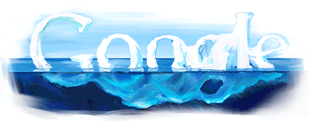The Linux kernel was first released to the public on 17 September 1991, for the Intel x86 PC architecture. The kernel was augmented with system utilities and libraries from the GNU project to create a usable operating system, which led to an alternative term, GNU/Linux.[2] Linux is packaged for different uses in Linux distributions, which contain the sometimes modified kernel along with a variety of other software packages tailored to different requirements.
Predominantly known for its use in servers, Linux is supported by corporations such as Dell, Hewlett-Packard, IBM, Novell, Oracle Corporation, Red Hat, and Sun Microsystems. It is used as an operating system for a wide variety of computer hardware, including desktop computers, supercomputers,[3] video game systems, such as PlayStation 2, 3, several arcade games, and embedded devices, such as mobile phones and routers.
In 1992, Linus Torvalds explained that he pronounces Linux as /ˈlɪnʊks/,[4] though other variations are common.
Programming on Linux
Most Linux distributions support dozens of programming languages. The most common collection of utilities for building both Linux applications and operating system programs is found within the GNU toolchain, which includes the GNU Compiler Collection (GCC) and the GNU build system. Amongst others, GCC provides compilers for C, C++, Java, Ada and Fortran. The Linux kernel itself is written to be compiled with GCC. Proprietary solutions compilers for Linux include the Intel C++ Compiler.
Most also include support for Perl, Ruby, Python and other dynamic languages. Examples of languages that are less common, but still well-supported, are C# via the Mono project, and Scheme. A number of Java Virtual Machines and development kits run on Linux, including the original Sun Microsystems JVM (HotSpot), and IBM's J2SE RE, as well as many open-source projects like Kaffe. The two main frameworks for developing graphical applications are those of GNOME and KDE. These projects are based on the GTK+ and Qt widget toolkits, respectively, which can also be used independently of the larger framework. Both support a wide variety of languages. There are a number of Integrated development environments available including Anjuta, Code::Blocks, Eclipse, KDevelop, MonoDevelop, NetBeans, and Omnis Studio while the traditional editors Vim and Emacs remain popular .


No comments:
Post a Comment